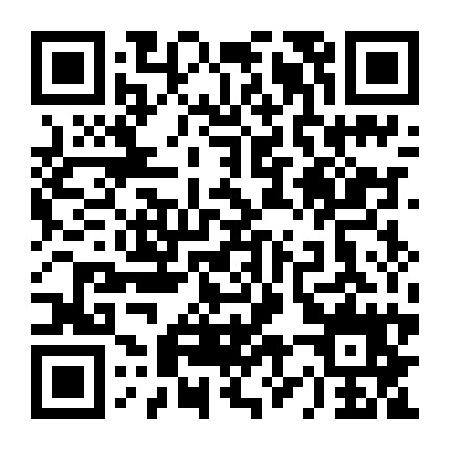英语考试的备考,参考历年真题是一个很重要的备考过程,今天新东方在线小编给大家整理了浙江大学2012年考博英语真题,帮助大家更好的备考,考博英语考试,一起来看看吧!
Section DI Cloze Test (20 marks, 1 mark each)
Directions: There are 20 blanks in the following passage. For each blank there are four choices marked A9 B, C and D. You should choose the ONE that best fits into the passage. Then mark the corresponding letter on the ANSWER SHEET with a single line through the center.
From childhood to old age, we all use language as a means of broadening our knowledge of ourselves and the world about us. When humans first 36 ,they were like newborn children, unable to use this 37 tool. Yet once language developed, the possibilities for human kind’s future 38 and cultural growth increased.
Many linguists believe that evolution is 39 for our ability to produce and use language. They 40 that our highly evolved brain provides us with a(n) 41 language ability not found in lower organisms. Supporters of this innateness theory say that our 42 for language is inborn, but that language itself develops gradually, as a function of the growth of the brain during childhood. Therefore there are critical 43 times for language development.
Current 44 of innateness theory are mixed; however, evidence 45 the existence of some innate abilities is undeniable. Indeed, more and more schools are discovering that foreign languages are best taught in 46 grades. Young children often can learn several languages by being 47 to
them, while adults have a much 48 time learning another language once the rules of their first language have become firmly fixed.
49 some aspects of language are undeniably innate, language does not develop automatically in a vacuum. Children who have been 50 from other human beings do not possess language. This demonstrates that 51 with other human beings is necessary for proper language development. Some linguists believe that this is even more basic to human language 52 than any innate capacities.
These theorists view language 53 imitative, learned behavior. 54 ,children learn language from their parents by imitating them. Parents gradually shape their child’s language skills by 55 reinforcing precise imitations and negatively reinforcing imprecise ones.
36. A. generated B. evolved C. bom D. originated
37. A. valuable B. appropriate C. convenient D. favorite
38. A. attainments B. feasibility C. entertainments D. evolution
39. A. essential B. available C. reliable D. responsible
40. A. confirm B. inform C. claim D. convince
41. A. innate B. basic C. inspiring D. outgoing
42. A. potential B. performance C. preference D. passion
43. A. ideological B. biological C. social D. psychological
44. A. reviews B. reference C. reaction D. recommendation
45. A. opposing B. supporting C. encouraging D. discouraging
46. A. various B. different C. the higher D. the lower
47. A. revealed B. exposed C. engaged D. involved
48. A. hard B. easy C. harder D. easier
49. A. Although B. Whether C. Since D. When
50. A. distinguished B. different C. protected D. isolated
51. A. exposition B. comparison C. contrast D. interaction
52. A. acquisition B. appreciation C. requirement D. alternative
53. A. to be B. into C. as D. of
54. A. As a result B. After all C. In other words D. Above all
55. A. negatively B. positively C. negative D. positive
考博必备!历年真题及答案
考博精品好课,就选新东方!
本文关键字: 考博英语真题

 资料下载
资料下载
【必看】考博英语词汇10000例精解
发布时间:2020-09-02关注新东方在线服务号
回复【10000】免费获取
医学考博英语作文核心基础词汇整理
发布时间:2020-04-15关注新东方在线服务号
回复【医学考博】获取
医学考博英语阅读理解练习资料
发布时间:2020-04-15关注新东方在线服务号
回复【医学考博】获取
法学考博英语高频词汇word版
发布时间:2020-04-15关注新东方在线服务号
回复【医学考博】获取
医学博士英语统考真题及解析
发布时间:2019-12-26关注新东方在线服务号
回复【考博真题】获取
全国医学博士外语统一考试真题
发布时间:2019-12-26关注新东方在线服务号
回复【考博真题】获取
中科院考博英语复习备考实战经验分享
发布时间:2019-12-26关注新东方在线服务号
回复【考博经验】获取
中科院考博英语真题练习资料
发布时间:2019-12-26关注新东方在线服务号
回复【考博真题】获取

关注新东方在线服务号
关注新东方在线服务号,
免费获取考博必看干货资料

 推荐阅读
推荐阅读
沈阳工业大学2022年博士研究生招生考试英语真题B卷
来源 : 沈阳工业大学 2022-12-26 16:19:18 关键字 : 沈阳工业大学2022博士英语真题
沈阳工业大学2022年博士研究生招生考试英语真题A卷
来源 : 沈阳工业大学 2022-12-26 16:18:19 关键字 : 沈阳工业大学2022博士英语真题
沈阳工业大学2021年博士研究生招生考试英语真题B卷
来源 : 沈阳工业大学 2022-12-26 16:09:06 关键字 : 沈阳工业大学2021博士英语真题
沈阳工业大学2021年博士研究生招生考试英语真题试卷A卷
来源 : 沈阳工业大学 2022-12-26 16:07:31 关键字 : 沈阳工业大学2021博士英语真题
沈阳工业大学2020年博士研究生招生考试英语真题试卷
来源 : 沈阳工业大学 2022-12-26 16:04:42 关键字 : 沈阳工业大学2020年博士英语真题


 考博好课推荐
考博好课推荐
基础薄弱,备考迷茫,送纸质资料
价格 : ¥2280元
资深教师,教学简明,直接有效!
价格 : 0元
 资料下载
资料下载
关注新东方在线服务号
回复【10000】免费获取
关注新东方在线服务号
回复【医学考博】获取
关注新东方在线服务号
回复【医学考博】获取
关注新东方在线服务号
回复【医学考博】获取
关注新东方在线服务号
回复【考博真题】获取
关注新东方在线服务号
回复【考博真题】获取
关注新东方在线服务号
回复【考博经验】获取
关注新东方在线服务号
回复【考博真题】获取

 阅读排行榜
阅读排行榜
 相关内容
相关内容